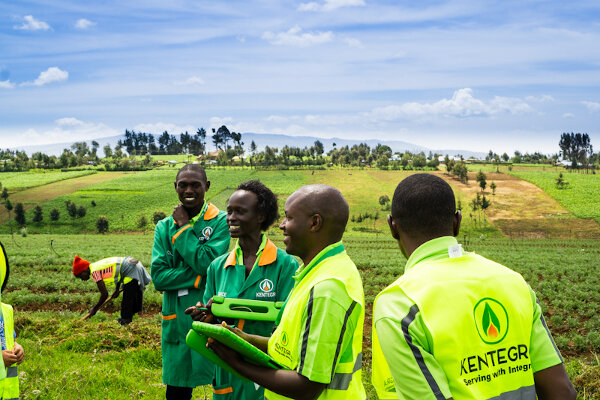
Investment Portfolio

Kuzuko Lodge - South Africa
Kuzuko Lodge is a five-star lodge and private game reserve in the Eastern Cape region of South Africa. Kuzuko was intentionally established with the explicit role of job creation in an area of endemic unemployment. Due to lack of infrastructure and challenging agricultural conditions there are limited economic options in the region. Eco tourism was identified as an opportunity due to the location at the end of the iconic Garden Route.
Inqo began acquiring farms, fencing, restoring the land and reintroducing animals in 2001. Kuzuko Lodge opened in 2007 and is operated by Legacy Hotels and Resorts, a leading South African hospitality group. Kuzuko Lodge is now a profitable business generating around 80 direct jobs with the opportunity for training and progression. Kuzuko’s clientele are predominantly high-end international tourists representing significant foreign exchange income for the region creating a trickle down effect through Kuzuko’s supply chain. Kuzuko’s profits fund the conservation of the 39,000 acre private reserve as well as 5 endangered species conservation programs including a cutting edge cheetah rewilding program in partnership with the Ashia Foundation and the Endangered Wildlife Trust (EWT). The Kuzuko Foundation, funded by guest donations and corporate sponsors, provides an educational outreach program for local school children in the Kuzuko Educational Park, giving them the opportunity to experience their natural heritage first-hand.
Social Impact
80 direct jobs created in an area of endemic unemployment
On-the-job training and career progression
Educational outreach through the Kuzuko Foundation
Significant inflow of foreign exchange into an economically deprived area
‘Trickle down’ effect through lodge supply chain
Environmental Impact
39,000 acres of degraded farmland restored
Endemic species reintroduced including the ‘Big Five’
Over 40 endemic mammal species present on the reserve
Five endangered species conservation programs
Cheetah rewilding program contributing to improved genetic diversity in meta population
Carbon sequestration through the restoration of spekboom thicket
Environmental education of local school children through the Kuzuko foundation

Sanergy - Kenya
Sanergy is an innovative waste recycling company adopting a circular economy approach in Kenya. Sanergy collect organic waste in the form of food waste from local businesses and sanitary waste, collected in the slums by their sister company Fresh Life, and turn it into high quality protein animal feed, fertiliser and biomass briquettes. Sanergy convert the waste by feeding it to black soldier flies. The fly larvae are then harvested to turn into animal feed and the left over material can be turned into fertiliser or biomass briquettes.
Sanergy’s business model solves an important waste management issue in an innovative way creating numerous jobs in the process. Sanergy is a great example of how environmentally conscious solutions can still drive economic growth. Sanergy are currently completing production on a factory capable of processing 70,000 tonnes of organic waste per annum. Once they have proven their ability to scale in Kenya they plan to expand their model to cities across the region.
Social Impact
Effective sanitation and waste management in the slums is alleviates a key health risk
3,300+ toilets serving 120,000 residents per day
8000+ tons of waste removed from the community per year
Sanergy’s business model creates significant employment
Sanergy’s high protein feed provides a cost effective and reliable feed source for Kenyan farmers
Sanergy’s investment in new technology provides a major knowledge transfer
Environmental Impact
Effective waste management prevents environmental pollution
Utilising wasted food limits the environmental impact of food waste
High protein produced with minimal carbon footprint alleviates pressure from other environmentally problematic foot stocks such as soy bean
Important source or organic fertiliser
Renewable energy produced from biomass briquettes
Successful example of commercially successful circular economy business will inspire others

Kentegra Biotechnology - Kenya
Kentegra Biotechnology Holdings LLC is a Kenyan based biotechnology company producing the organic insecticide pyrethrum, a natural active ingredient from the chrysanthemum flower. Pyrethrum production was once a significant part of the Kenyan economy supporting thousands of livelihoods until poor management saw a collapse of the state-run industry. Kenya is one of the few places in the world with the right climatic conditions to grow this high value crop.
Kentegra have developed a successful outgrowers model with over 5,000 farmers currently contracted with plans for further expansion. Kentegra is able to pay their farmers roughly four times more per acre than they would receive from growing traditional cash crops and with chrysanthemum harvests occurring ever two weeks, revenue is more frequent and predictable improving farmers’ cashflow management. The increased income Kentegra provides for its farmers is potentially life changing and there is already good evidence of the impact Kentegra are having in their community.
Social Impact
Significant increase in income for over 5,000 out grower farmers
Regular payments offer financial security and ease financial planning
Job creation with opportunities for progression
Knowledge skills transfer in the agronomy and manufacturing sectors with significant investment in expanding knowledge base
Environmental Impact
Organic pesticides are more environmentally friendly than their synthetic derivatives
Organic pesticide treatments for fresh food extend the life of food so reducing food waste with minimal environmental impact compared to synthetic alternatives

Spekboom Trading - South Africa
Spekboom is native South African shrub that sequesters large quantities of carbon. Due to historic overgrazing, many areas of spekboom thicket are currently degraded in the Eastern Cape. Inqo have developed Spekboom Trading as a joint venture with AfriCarbon. Spekboom Trading has been approved by the Verified Carbon Standard (VCS) to trade carbon credits generated through spekboom reforestation through the voluntary carbon market.
An initial proof of concept for Spekboom Trading took place in 2012 with 500ha of spekboom thicket restored over two years generating 200 jobs in the process. Spekboom Trading is now refining the planting process with trial plantings using different techniques to maximise reforestation efforts and carbon capture in preparation for full scale restoration efforts to generate carbon credits.
Social Impact
Spekboom restoration creates jobs in a region of endemic unemployment
Sale of carbon credits creates an influx of income into a region with limited economic options
Environmental Impact
Spekboom sequesters a significant amount of carbon helping to mitigate man made climate change
Restored spekboom thicket creates a cooler microclimate that supports increased biodiversity
Spekboom thicket helps retain moisture and reduce run off and soil erosion

South Lake Medical Centre - Kenya
South Lake Medical Centre (SLMC) is a 27 bed referral level hospital at the southern end of Lake Naivasha in Kenya. SLMC operates on a hub and spoke model with medical clinics based around flower farms and in population centres surrounding the main hospital.
SLMC caters predominantly to low income workers from the surrounding flower farms and hospitality sector. Inqo recently invested alongside the Johnson and Johnson Venture fund and Sumerian Partners to expand the services available at the hospital to include a minor and major surgery unit. At present, the only major hospital in the region is the government hospital in Naivasha that is over stretched and un able to effectively serve all the people in the region. SLMC is a vital addition to the medical services in the region offering high quality medical care at an affordable price for low income workers.
Social Impact
Provision of key medical facilities for low income workers in a region where healthcare is constrained
SLMC covers more than 90,000 patients visits each year
Educational outreach work to improve health education
Provision of skilled and low skilled jobs

Mazima Retirement Plan - Uganda
The Mazima Retirement Plan is a voluntary retirement savings scheme for low income earners in the informal sector of the economy in Uganda. It is regulated by the Uganda Retirements Benefits Regulatory Authority (URBRA). Under the Mazima scheme, saving is flexible – the minimum is ~US$0.60 with no regular savings required by informal workers. Savers choose when and how much to save. By aggregating the small savings, Mazima will be able to get the higher Fixed Deposit (FD) rates that would not be available to the small savers. Savers register online and pay through mobile banking or e-banking through the bank. No cash is used. Each saver has his/her own account managed by the custodian bank, Housing Finance Bank. The investments are managed by AA Financial, a regulated advisor with Four One Financial Services as the administrator. The Company also offers short term savings and loans under its MayiCard platform.
Social Impact
Most low informal sector workers do not have savings or a retirement plan, by saving through Mazima members gain vital financial security
Creation of skilled jobs
Financial education for informal sector workers










